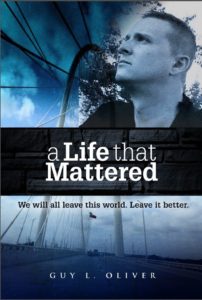Today marks a significant anniversary for me personally and, as I consider its import, I’m struck by how little attention it has received—how little attention it always receives, year after year.
I spent the day lurking on social media. I watched as you posted the kinds of things I typically post. Your meals, photos of your lives, humorous memes, uplifting exhortations, your out of town trips—all the things that make me want to follow you. But not a single post about this day, a red letter anniversary that always gives me pause.
Today is the 30th anniversary known as The Day the Wall Came Down.
On November 9, 1989, the German Democratic Republic announced that travel to and from East Germany would no longer be restricted. And with that announcement, plans for the demolition of the Berlin wall began to spontaneously and organically emerge.
From that day forward, bit-by-bit and brick-by-brick, it seemed, the wall began to disintegrate. Much of it the result of private citizens. People who hated the physical division of their home city and the constant reminder that Germany was a nation literally divided by outside forces.
And with the demolition of the Berlin wall, came the acknowledgment that a new day had dawned. Something remarkable—a life altering event that brought with it an unexpected shock wave throughout Eastern Europe. No longer would the Soviet Union, which, immediately, it seemed, began to crumble, be the safety net under which three generations of East Germans had come to rely.
Life was terrible under the tyrannical iron fist of the Soviet Union, but it was the only life the people of that nation knew and just as quickly as it ensnared them, it vanished. There was no time for adjustments on the part of individuals when their freedom was suddenly returned to them after nearly 50 years.
Initially, no one knew what to do with freedom. Jobs disappeared overnight, poverty became universal, and life for most former East Germans went from mundane and unremarkable to bleak and desperate. It was a life changing event—but initially not for the better.
Yet people adapted. It wasn’t easy, and for some people it was no-doubt an unwanted experience thrust upon them as a seemingly random event that made no sense. But they eventually learned to cope with a new reality—a reality most of them didn’t have the capacity to imagine before the fall.
Which brings me to the other anniversary I observe today—just as unexpected and equally life-altering. Six years ago today I lost my son to an inexplicable one-car accident. No one could explain how or why it happened. The truck he was driving simply left the road at highway speed and struck a tree. There was a fire and everything was destroyed.
And like his accident, there’s no way to explain my experience in the moment my life so radically changed. Unlike the people of East Berlin and the rest of the world there was no celebration, but like these individuals, in a moment I was forced to cope with a new reality.
I was the father of three; two girls and a boy. My son was the oldest and most impetuous, which I must admit was part of his charm—but it led him to places and moments that were ill-advised. I tried desperately to correct his missteps but like an impertinent child, he insisted to go his own way.
And I stepped back and watched, finally turning my back on the wayward life he chose.
His choices led him to addiction, and crime, and eventually prison. This was how he used his freedom; a platform for indulgence. And, willingly, he gave himself over to the tyrannical masters first of addiction and then the Texas Criminal Justice System.
And then, a miracle.
He was paroled after only two years of time served on a ten-year sentence—and we, his family and I, rallied around him. He was freed from the bonds of prison and we rejoiced, believing that he would, without hesitation, rejoin us, integrating himself into our lives as our memories told us we had always known him. But life is never that simple.
His misspent youth and young adulthood left him nothing to return to. He had no experiential sense of what it meant to be employed, or to pay bills, or to live in his own home. And like the people of East Germany, when loosed from his bonds, though we thought it would be a simple matter of him just getting a job, an apartment, and enrolling in a community college, being outside a prison facility terrified him. He was simply unable to function.
But like the people of East Germany, he adapted. And for a year, from the time he was paroled, he and I picked up where we left off ten years earlier. We worked at a father-son relationship, which slowly took root and began to blossom.
For those few months, life was good and we thought we had time in front of us—but we were wrong and, thankfully, we had no way of knowing what was to come. And then came my life-altering moment by way of a phone call from my ex-wife who had received the news from a police officer on a Saturday evening a few minutes earlier.
And we wept.
Then we adapted. It’s been six years and along the way, I came to an understanding of how to adapt to such a curve life throws your way and, in the adapting, my own wall came down. A wall just as real as the Berlin wall; just as solid and preventive—or so I’m told. I’m told I’m softer now. And who am I to argue?
Yes; today marks an anniversary of great import. Well, two actually.



